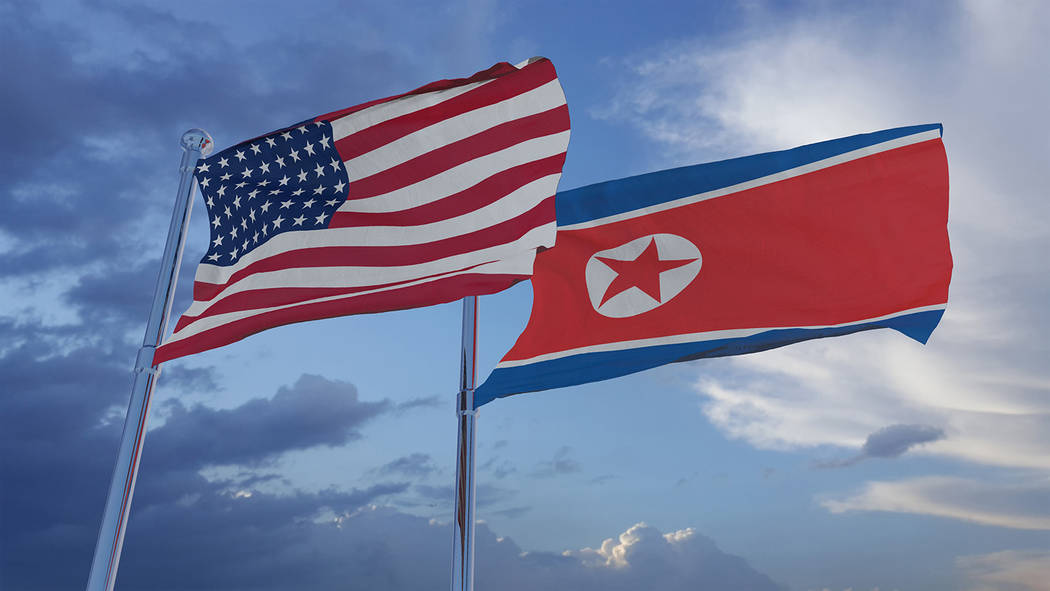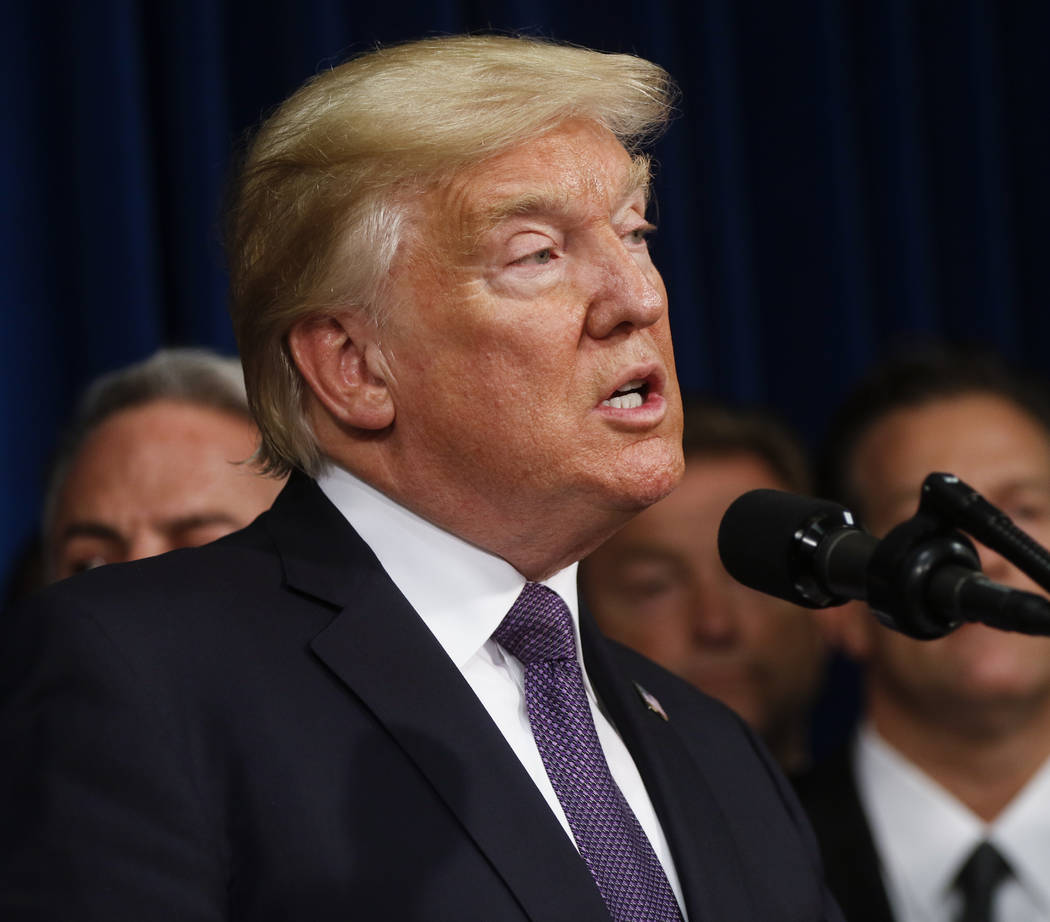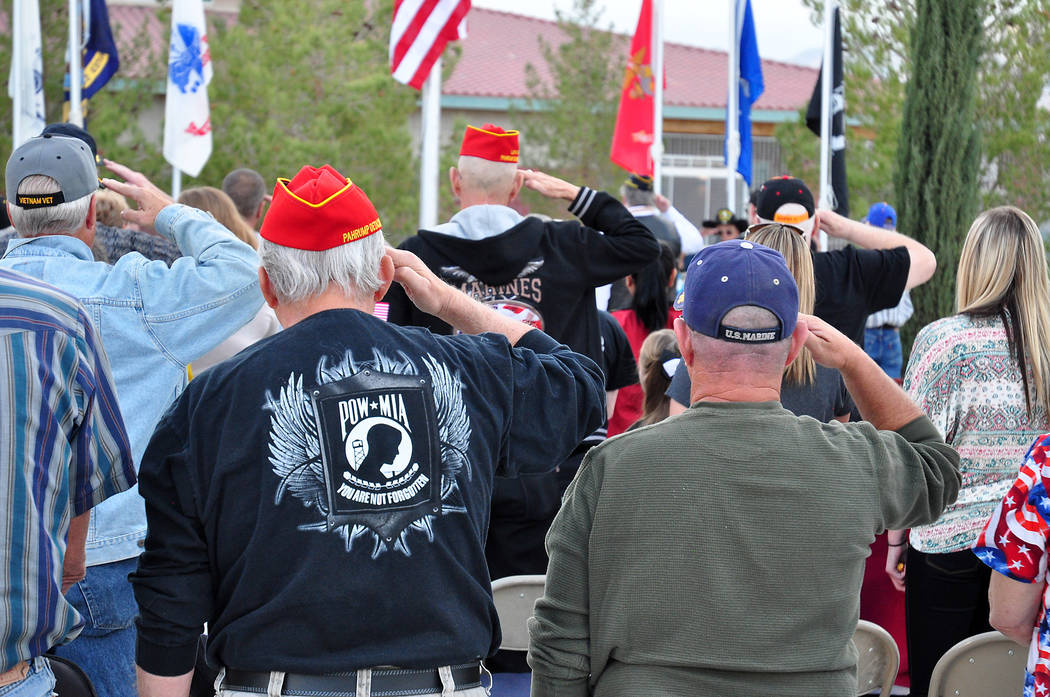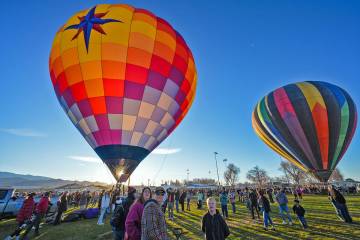Pahrump area veterans offer insights on U.S.-North Korean summit
There are varying degrees of local reaction to the long-anticipated U.S. and North Korean summit this week, as President Donald Trump and North Korean Supreme Leader Kim Jong Un met for talks in Singapore.
Long story short, both countries have been immersed in conflict for close to 70 years. On June 25, 1950, North Korea invaded South Korea after a string of clashes along the border.
As a result, Korea was divided into two regions, both with separate governments, which claimed to be the legitimate government of all of Korea.
Neither side has accepted the border as permanent.
War veteran account
Pahrump resident Jose Tellas, a Marine Corps veteran of the Korean War, was on that border during the height of the conflict.
On the issue of this week’s summit, Tellas said he hopes both sides reach a better understanding once all is said and done.
“I think it’s great that we are having at least some discussions with North Korea,” he said. “When I was there back in 1953, where the DMZ line is, we stood guard there, but it’s a little different now. It seems like the North Korean president is starting to wake up to the situation. If our president can go over there and make the situation a little better, it would be an awesome thing because we wouldn’t have to send more troops over there and keep more troops there. I left South Korea on March 17, 1954.”
Communication is key
Local veteran Allen Parker, who served as a first lieutenant in the Air Force from 1962 until 1966, considers himself a veteran of the Vietnam era, but he had plenty of thoughts on the Korean conflict, as well as this week’s summit.
Parker said he believes it’s always best when opposing nations engage in meaningful discussions as a way to avoid major conflicts such as all-out war.
“I think that it is a good thing to talk, if for no other reason than to at least establish a relationship,” he said. “I also believe that it’s a good thing to talk face-to-face, as opposed to long-distance intimidation and the angst that sometimes goes with the saber-rattling and things of that nature. If you can get two people of equal stature across the table for a face-to-face to talk, I think at least at the outset it would be a good thing.”
When asked whether he thought both the U.S and North Korea could possibly be allies sometime in the future, Parker pointed to what occurred following World War II, more than 70 years ago.
“We were at war with Germany and Japan and we defeated them,” he said. “Decades later now, we are now allies. History shows that adversaries can eventually become allies, so we do have history on our side that has shown it has indeed happened. Therefore, nothing in my mind is outside the realm of possibility. I would just look at history and say that it’s possible.”
Historic actions
Pahrump resident Dr. Tom Waters served 32 and a half years in the U.S. Air Force, where he was commissioned to the rank of second lieutenant in 1973.
He described the summit as a positive step in the right direction.
“The fact that both leaders are talking is a great thing and it seems the president has done something that no one else has been able to do,” Waters noted. “I spent enough time in South Korea and I learned that we do not want a war with North Korea. I was stationed in the Philippines, but the primary mission of our unit was to simply protect South Korea. All of our exercises were based on the fact that the north was going to attack the south and we were there to repel the north.”
Regarding North Korea becoming a future ally to the United States, Waters seemed doubtful.
“I just don’t see that happening and I also do not see a real good outcome to what the president is doing right now,” Waters pondered. “If you look at the history of North Korea, the leader knows he’s going to outlast this president and possibly the next president. He will still be in power and play the same games he did with Obama, Bush and Clinton. They could agree to anything, but they have no problem walking away. They, (North Korea) have no credibility with me at all.”
No winners
Additionally, Waters said he believed that an all-out war with North Korea would result in devastating consequences for the region and beyond.
“I see the president of South Korea doing the hugs and handshakes with the leader of North Korea, but the military people just do not like each other,” he said. “I will say that if there is a war, at least one million people will die in the first 15 minutes in Seoul, South Korea and that is something that we just don’t want to do. There’s a good chance that Russia will also be drawn into it, so there’s just no good military option there, in my opinion.”
Disturbing revelations
A report released by the Department of Defense last month stated that North Korea is totally committed to its nuclear forces.
Additionally, the report provided no reason to anticipate a reconsideration or a reorientation of the country’s nuclear policies, though that is the main premise of the summit meeting between President Trump and North Korean leader Kim Jong Un.
“Pyongyang portrays nuclear weapons as its most effective way to deter the threat from the United States,” officials with the Department of Defense said.
Moreover, in a May 17, 2018 report, the Pentagon stated that the North Korean regime has actually staked its survival on the development of nuclear weapons.
“North Korea ultimately seeks the capability to strike the continental United States with a nuclear-armed ICBM,” a Pentagon report stated. “This pursuit supports North Korea’s strategy of deterring the United States as well as weakening U.S. alliances in the region by casting doubt on the U.S.commitment to extended deterrence. In the long term, North Korea may see nuclear weapons as permitting more frequent coercive behavior and may further increase Kim Jong Un’s tolerance for risk.”
Contact reporter Selwyn Harris at sharris@pvtimes.com. On Twitter: @pvtimes



















